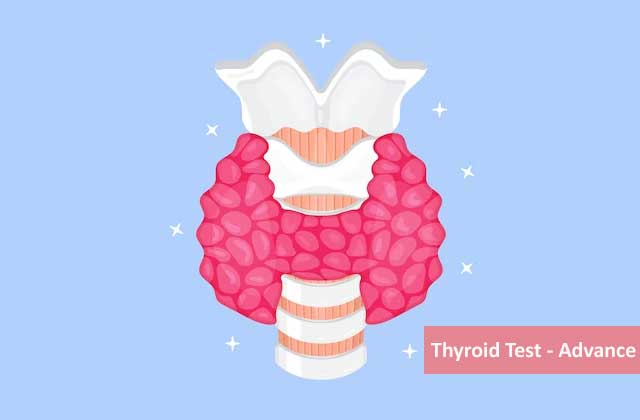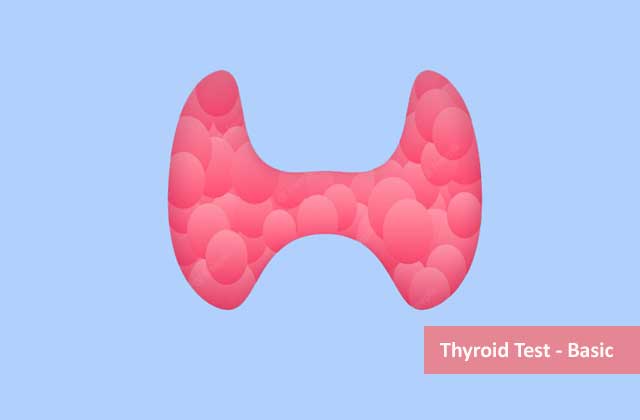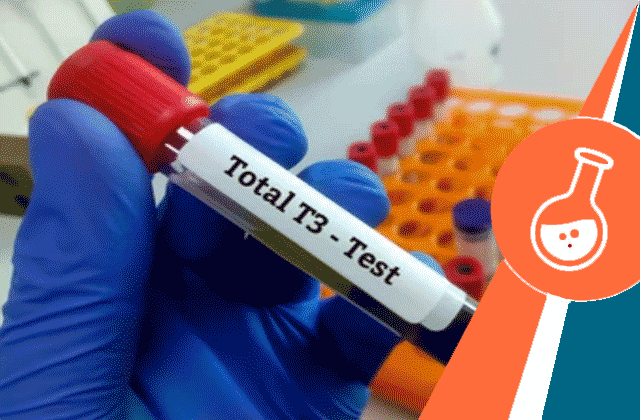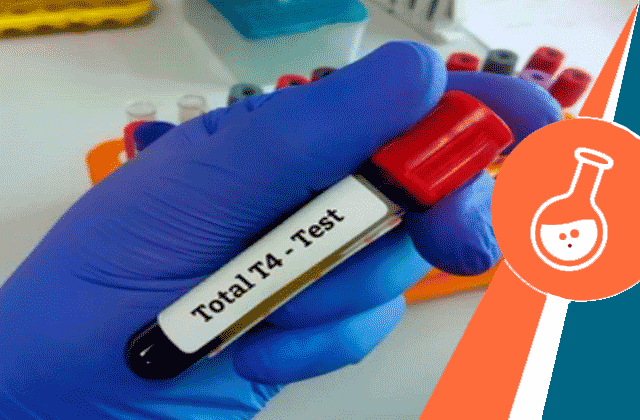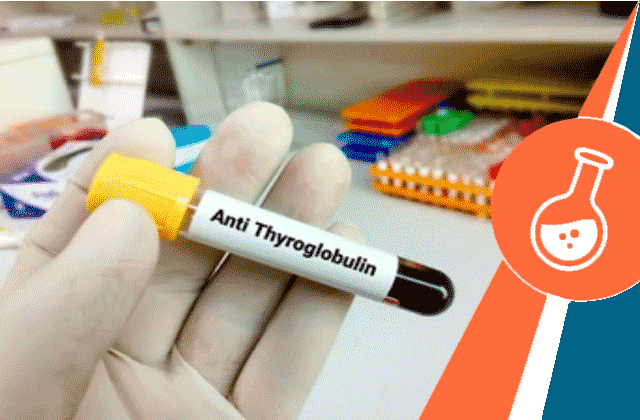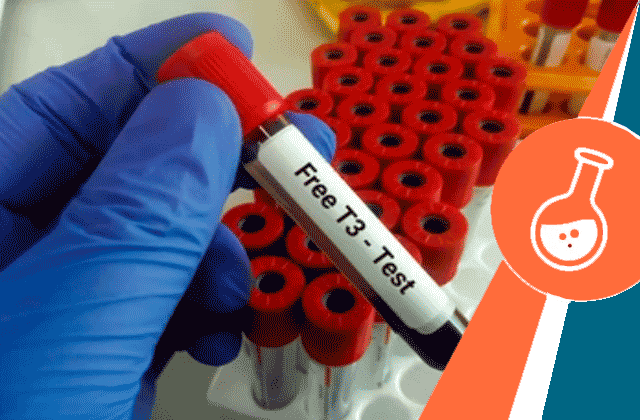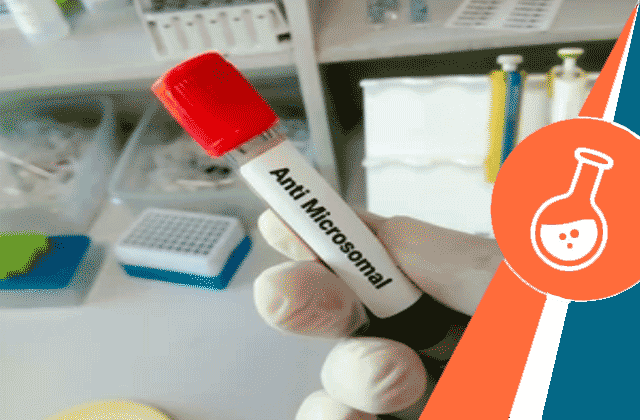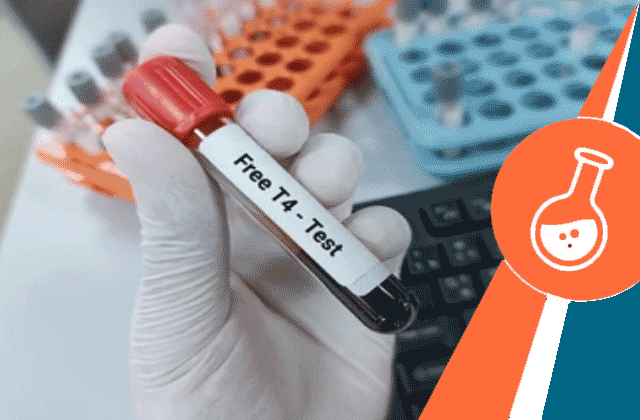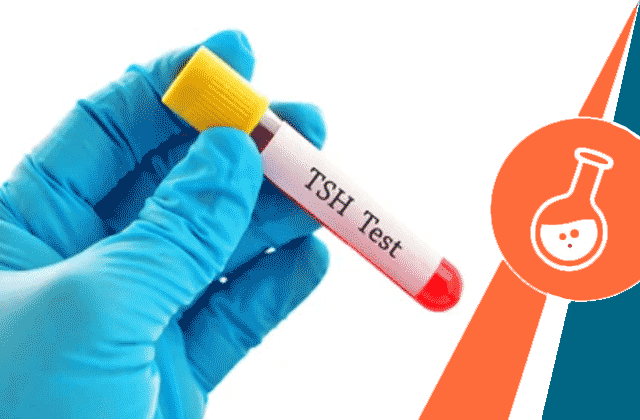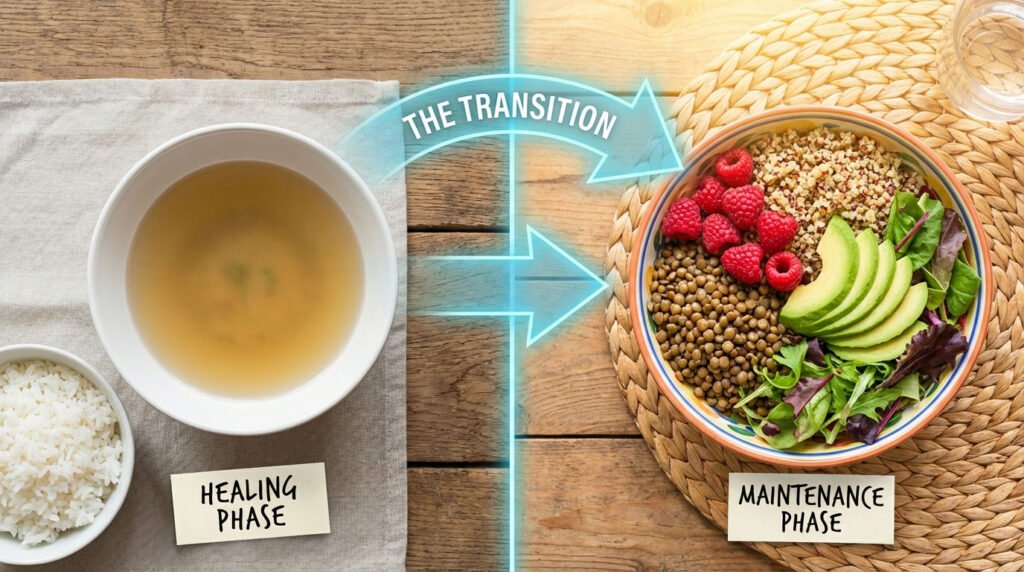Thyroid Profile Test
Don't Let Thyroid Problems Linger Unnoticed, Uncover Insights with Thyroid Testing
Are you experiencing unexplained symptoms like fatigue, weight changes, or mood swings? Don’t let potential thyroid problems go unnoticed. Take charge of your health journey with comprehensive thyroid testing. Understanding your thyroid function is crucial for overall well-being. With thyroid testing at home, you can uncover valuable insights into your body’s balance. Don’t delay your thyroid check-up any longer. Assess your thyroid function test today and gain clarity on any underlying issues.
Discover Thyroid Balance: Begin by Booking a Comprehensive Thyroid Test Online!
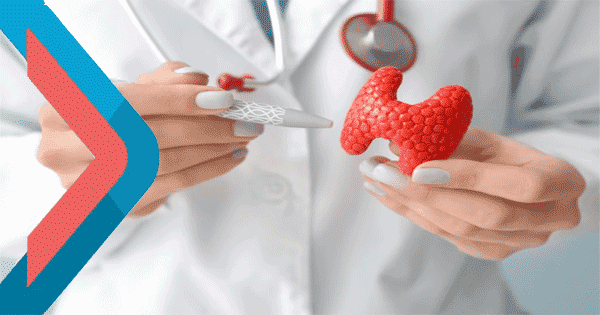
Explore Book Thyroid Panel Test | 30% Off on Thyroid Profile Test Prices List & Packages
₹449
₹399
- Includes 3 Parameters
₹1679
₹1098
- Includes 1 Parameters
₹1819
₹1190
- Includes 1 Parameters
How To Get This Test

CHOOSE YOUR TESTS
Select and Book Tests/Packages with best available Offers.

PHLEBOTOMIST VISITS YOUR PLACE
Select and Book Tests/Packages with best available Offers.

GET YOUR TEST REPORTS
Get reports on Email/WhatsApp in 24-48 hours from sample pickup.
What Is The Purpose Of Getting a Thyroid Profile Test?
- If you are going through unexplained weight gain or loss, fatigue, hair loss, dry skin, or irregular menstrual periods, your doctor may recommend thyroid profile testing to check for any underlying thyroid problems
- In case you have a family history of thyroid disease, you may be at a higher risk of developing thyroid problems yourself, and your doctor may recommend a Thyroid function test to monitor your thyroid function
- Pregnant or planning to become pregnant? If yes, your healthcare professional may recommend a thyroid profile test to ensure that your thyroid function is normal, as thyroid problems during pregnancy can have negative effects on both you and your baby
- If you have been recently diagnosed with a thyroid condition such as hypothyroidism, Graves’ disease, Hashimoto’s thyroiditis or hyperthyroidism, you will need to go through frequent thyroid blood testing
- If you are taking medication that can affect your thyroid function, such as lithium or amiodarone, your doctor may recommend a thyroid function test (TFT Test) to monitor your thyroid function and adjust your medication as needed
What are The Causes of Thyroid Problems
- Genetics: Thyroid issues can run in families. If one or more of your close relatives has a thyroid condition, you may be more likely to develop one yourself
- Autoimmune disorders: Autoimmune disorders occur when the immune system attacks healthy cells. In the case of thyroid disorders, the immune system attacks your thyroid gland, leading to inflammation and dysfunction.
- Iodine deficiency: Iodine is an essential mineral to produce thyroid hormones. If you don’t get enough iodine in your diet, your thyroid may not be able to produce enough hormones, which can eventually lead to hypothyroidism.
- Pregnancy: Pregnancy can cause changes in hormone levels that can affect the thyroid gland. Some women may develop an autoimmune thyroid disorder during or after pregnancy.
- Radiation exposure: Exposure to radiation from medical treatments or environmental sources can damage the thyroid gland and lead to thyroid problems.
- Medications: Certain medications, such as those containing lithium and amiodarone, can affect the function of the thyroid gland and lead to thyroid issues.
- Stress: Chronic stress can affect the immune system and hormone levels, contributing to thyroid dysfunction.
- Age: Your risk of developing thyroid problems increases as you age.
What Symptoms Indicate the Need for a Thyroid Profile Test?
People suffering from thyroid can indicate the following symptoms:
- Fatigue: Chronic fatigue, even after getting enough sleep, can be a symptom of an underactive thyroid or hypothyroidism, as the thyroid hormone plays a role in regulating energy levels.
- Weight changes: Significant weight gain or loss without any drastic changes in diet or physical activities can indicate a thyroid issue, as the thyroid hormone regulates metabolism.
- Hair loss: Losing hair, especially from the scalp or eyebrows, can be a symptom of hypothyroidism as the thyroid hormone plays a role in hair growth.
- Mood changes: Feeling anxious, depressed, or irritable can be a symptom of both hypothyroidism and hyperthyroidism, as the thyroid hormone plays a role in regulating mood.
- Irregular periods: Heavy or irregular menstrual periods in women can be a symptom of hypothyroidism or hyperthyroidism, as the thyroid hormone plays a role in regulating the menstrual cycle.
Several symptoms may indicate the need for a thyroid panel test. If you experience persistent or severe symptoms suggestive of thyroid dysfunction, it’s important to consult a healthcare professional for proper evaluation and diagnosis.
Read More:Thyroid Issues In Women: Why Women Are at Higher Risk
Forms of Thyroid Problems Diagnosed by TFT Blood Test
- Hypothyroidism: In hypothyroidism, the thyroid gland does not produce enough thyroid hormones. High TSH, low T4/T3.
- Hyperthyroidism: In Hyperthyroidism,the thyroid gland produces an excessive amount of thyroid hormones. Low TSH, high T4/T3.
- Hashimoto’s: In Hashimoto’s thyroiditis, an autoimmune disorder, the thyroid gland is attacked by the body’s immune system, causing inflammation and the eventual breakdown of thyroid tissue. High TSH, normal/low T4/T3.
- Graves’ Disease: Graves’ disease is an additional autoimmune condition marked by autoantibodies that cause the thyroid gland to overproduce thyroid hormones. Low TSH, high T4/T3.
- Thyroid Nodules and Thyroid Cancer: TFTs alone insufficient; imaging and biopsy needed.
Different Ways To Test Your Thyroid And Identify Potential Issues
Diagnosing thyroid disorders typically involves a combination of physical exams, medical history reviews, and laboratory testing. There are several types of thyroid tests that can be used to assess thyroid function and diagnose thyroid disorders. The most common tests include:
- Blood tests: Blood tests are used to measure the levels of thyroid hormones and thyroid-stimulating hormone (TSH) in the blood. Abnormal levels of these hormones can indicate a thyroid disorder.
- Thyroid-stimulating hormone Test (TSH): This hormone is produced by your pituitary gland and stimulates your thyroid gland to produce thyroid hormones. High levels of TSH can indicate an underactive thyroid, while low levels can indicate an overactive thyroid.
- Thyroxine Test (T4): This hormone is produced by your thyroid gland and regulates your body’s metabolism. High or low levels of T4 can indicate a thyroid problem.
- Triiodothyronine Test (T3): This hormone is also produced by your thyroid gland and regulates metabolism. High or low levels of T3 can indicate a thyroid problem.
- Thyroid antibodies Test: These are proteins produced by your immune system that can attack your thyroid gland, leading to thyroid problems such as Hashimoto’s thyroiditis or Graves’ disease.
- Imaging tests: Imaging tests, such as ultrasound, can be used to evaluate the size and shape of the thyroid gland and detect any abnormalities or nodules.
- Biopsy: A biopsy involves taking a small thyroid tissue sample to test for cancer or other abnormalities. This test is typically done if imaging tests reveal suspicious nodules.
Thyroid Function Test Reference Ranges
The thyroid profile test normal range can vary depending on the laboratory and the specific test used. Check the below-mentioned table to understand whether your thyroid blood test results fall within the normal range.
Test | Normal Range |
TSH | 0.5-5.0 mIU/L |
T4 | 5.0-12.0 mcg/dL |
Free T4 | 0.7-1.9 ng/dL |
T3 | 80-200 ng/dL |
Free T3 | 2.0-4.4 pg/mL |
Interpreting the Thyroid Test Results
- TSH: If your TSH levels are high, it may indicate an underactive thyroid (hypothyroidism), while low levels may indicate an overactive thyroid (hyperthyroidism)
- T4 and T3: High levels of T4 or T3 may indicate hyperthyroidism, while low levels may indicate hypothyroidism
- Thyroid antibodies: If your thyroid antibody levels are high, it may indicate an autoimmune thyroid condition such as Hashimoto’s thyroiditis or Graves’ disease.
Thyroid Profile Test Price
When it comes to assessing thyroid-related health concerns, individuals often contemplate the thyroid profile test prices in India.
- Understanding Thyroid Profile Test Prices: The thyroid profile test cost in India can vary, ranging from Rs. 300 to Rs. 3000, depending on the specific tests included in the Thyroid test package. For a detailed breakdown of the individual charges associated with each test featured in a Thyroid Panel, please refer to the table provided below.
- Considerations and Factors: It’s imperative to recognize that the averages of Thyroid function test costs mentioned serve as general benchmarks observed across various diagnostic centres. Keep in mind that thyroid test prices may undergo fluctuations based on your geographical location.
- Accessible Testing with HealthcareOnTime: Here’s where it gets exciting! At HealthcareOnTime, we are deeply committed to ensuring healthcare accessibility for all individuals. That’s why we offer valuable services, including budget-friendly options for Thyroid test costs in over 4500+ pin codes nationwide. We prioritize your health and well-being, striving to make essential health assessments easily accessible for everyone.
Thyroid Tests | Price (INR) |
₹ 320-399 | |
₹ 299-599 | |
₹ 320-399 | |
₹ 299-699 | |
₹ 320-399 | |
₹ 1100-1800 |
By opting for HealthcareOnTime lab test at-home facilities, you can access comprehensive Thyrocare Thyroid Test Packages. We provide two options: a basic package encompassing 3 parameters and an advanced package covering 6 parameters. Ensure your well-being by incorporating Thyroid screening tests into your routine health checkups with our convenient at-home testing services.
Package Type | Parameters Covered | Price (INR) |
T3, T4, and TSH | ₹ 300 | |
T3, T4, TSH, FT4, FT3, and AMA | ₹ 1100 |
How to Prevent Thyroid Problems Effectively?
Once detected, thyroid issues can take a while to return to normal levels. Whether you are diagnosed with thyroid, here are some preventive measures to follow and maintain a healthy lifestyle.
- Maintain a balanced and nutritious diet: Eating a healthy diet rich in nutrients, including iodine, selenium, and zinc, can help support thyroid health and prevent iodine deficiency.
- Exercise regularly: Regular exercise can help maintain a healthy weight and improve overall health, which can prevent thyroid issues to a great extent.
- Manage stress: Chronic stress can negatively impact thyroid function, so finding ways to manage stress, such as meditation, yoga, or deep breathing exercises, can be extremely beneficial.
- Protect yourself from radiation: Limiting radiation exposure, both from medical procedures and environmental sources, can help prevent thyroid damage.
- Book Frequent thyroid test at home: If you have a family history of thyroid problems or are experiencing thyroid test symptoms, regular health check-ups with your doctor and booking thyroid test online at home can help catch any issues early and prevent them from becoming more severe, you can also opt for at-home full body health checkup.
Read More: Thyroid Healing Food: Best Food to Eat & Avoid by Thyroid Patients
Curious About Thyroid Wellness? Explore Your Testing Options with Us!
Facing the challenges of thyroid issues? Don’t let uncertainty hold you back. Everyday tasks can feel overwhelming when struggling with thyroid problems, but you’re not alone. At HealthcareOnTime, we understand the impact thyroid issues can have on your life. Our convenient thyroid testing at home services revolutionize the way you monitor your thyroid health. Say goodbye to long waits at the lab – we bring the lab to you, all at an affordable price.
Thyroid disorders come in different forms, each requiring tailored attention. With us, you can explore comprehensive thyrocare thyroid testing packages designed to uncover hidden issues and provide clarity on your thyroid health status. Our commitment to affordability ensures that managing your thyroid health won’t break the bank.
Your health is a priority. Take control of your well-being by scheduling your Thyrocare thyroid test today. Together, let’s take the first step towards a balanced and vibrant life, free from the constraints of thyroid issues.
Liver Affecting Your Health? Get Answers to Your FAQs!
Is thyroid curable?
In most cases, thyroid conditions are treatable but not always curable. The treatment approach depends on the underlying cause of the thyroid disorder, and in some cases, lifelong management may be necessary.
Is it safe to get a thyroid panel test during pregnancy?
Yes, getting a thyroid test during pregnancy is safe, and it is recommended as part of routine prenatal care. Pregnancy can affect the thyroid gland, leading to temporary or permanent changes in thyroid function. Untreated thyroid disorders during pregnancy can increase the risk of complications, such as premature birth, low birth weight, and preeclampsia. Therefore, thyroid function test (TFT Test) are routinely done during the first trimester of pregnancy to detect any abnormalities.
Can I eat or drink anything before a thyroid test?
It is generally recommended that you fast for at least 8 hours before a thyroid test and avoid eating or drinking anything other than water
Can I get a thyroid test done if I have a fever or cold?
It is generally recommended to wait until you have recovered from a fever or cold before getting a thyroid test. This is because these conditions can affect thyroid hormone levels and potentially skew the test results.
Can I get a thyroid panel test done if I am taking medications?
You can still get a thyroid test done if you take medications. However, it’s important to inform your healthcare provider about any medications you take.
How often should I get a thyroid test if I have thyroid problems?
The frequency of thyroid tests depends on the severity of your thyroid problem and the treatment you receive. Generally, if you have a thyroid problem, your healthcare provider will monitor your normal thyroid levels regularly, typically every 6-12 months or as needed to adjust your treatment plan.
Will the removal of thyroid cause pregnancy problems?
Thyroid removal might cause pregnancy complications as thyroid hormone is required for embryonic brain development. Careful monitoring and hormone replacement therapy can help in the treatment of this disease.
Building a Legacy of Healthy Smiles
Hear from Our Valued Clients
Service was prompt, sample collected on time. And also got the report quickly.
HealthcareOnTime Blogs
Stay Informed: Latest Insights on Health, Conditions, Tests, and Treatments VIEW ALL

